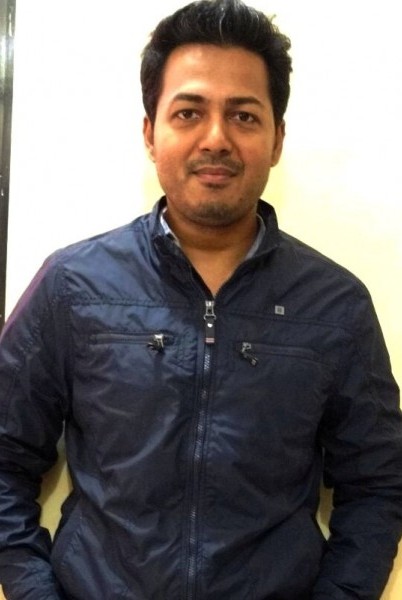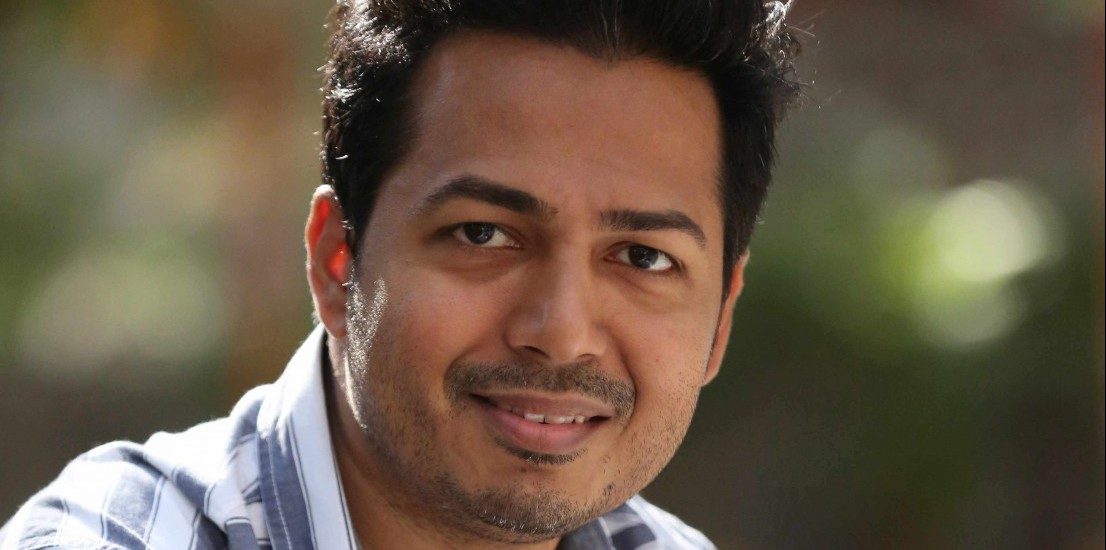Films are not all about entertainment – Manish Singh
It is extremely encouraging to see someone who pursues their passion, and does all that they can, to make their vision come to life. Manish Singh has done exactly that, as he steps into the director’s shoes for his short film Sucks’S Story. The writer – turned – director has ensured that his vision, as a writer, takes form in the best way possible as it translates on to the screen. This is what he has to say about his film.

Director Manish Singh
You’ve written for renowned shows like CID. How did your foray into screenwriting happen?
I have been a storyteller from my school days. CID was the first show that I got as a dialogue writer. Post CID I had to wait for a while and then I got to write for a comedy show called Raju Hazir Ho for Endemol. I then wrote the story for F.I.R. for Sab TV and another show called Heroes that aired on Channel V. The show was on sexual harassment of women and I wrote the dialogues for it. My most recent show was Dilli Wali Thakur Girls.
But I was very keen to do something of my own; I had a few concepts and wanted to do them my way. That’s when I decided to start with a short film. For Sucks’S Story, I had around 12 artists and 25 locations. It was a little tough, but never the less I started with a screenplay and this was the first time that I was directing.
READ: PERCEPT PICTURE PRESENTS ITS FIRST SHORT FILM – (AIDS+ B)2
When and how did the thought of making a film come to you?
When I went to any studio, I would see hundreds of people standing outside, everyday and everywhere. They would stand with their photos, requesting people to have a look, and some of them have been doing this for years; I have seen them becoming old and still not getting any work. That’s when I realised that these people, who are unknown, are just part of a crowd. They do a few small roles here and there but are still unrecognized and therefore part of a crowd. I then started thinking about this crowd and where did they come from. I did some research to understand them and also spoke with a few people to understand what have they done till now and I got to know so much about them.
That’s when I realized that these people are victims of misunderstandings and that people in this industry exaggerate and lie a lot. People come to the city with great expectations, but finally when they realise that nothing is happening, they eventually become part of the crowd. That is what I have tried to show in this film. No matter how much work you are doing or not doing – if you are unknown, you are part of the crowd.
Was direction always on your mind?
Yes, I wanted to get into direction. But I wanted to start with short films. I have shot one more film and we are currently working on the post. Again, it’s a 10-minute film called Season’s Greetings.
So is the story of your film, Sucks’S Story, similar to your experiences in Mumbai?
The experiences are not exactly the same. It’s a little bit of everyone’s experiences. We all have different experiences, so you can compare the story with mine or with almost everyone’s story to an extent.

Still from the film
What was the making process of the film like?
Casting was a big problem as I had around 12 characters to cast and no one really wanted to act in a short film. And since they were 12 of them, it was difficult to get all of them together at one time. We got Anurita Jha of Gangs of Wasseypur and Jugni fame to play one of the characters. The actor, who plays a struggler in the film is Sundeep Hemnaoni who has acted in 24 (TV series) and Bobby Jasoos. He loved the script and was ready to be part of the film. Govind Pathak who plays the father has previously acted in movies like Heropanti and Citylights. For the post, we had Hitesh Chaurasia who has received an award for the best sound designer while Subir Das who did the mixing, has earlier worked on PK. So everyone liked the script and hence agreed to be part of the film.
READ: THE WEB IS FAR MORE DEMOCRATIC THAN MOVIES – SHOUVIK
How was the experience of directing the film?
It was a big challenge for me and was also quite difficult as it was my first time. I ended up re-shooting many scenes. Basically I am a writer and I think with a pen and paper, and it’s very different when you sit with a camera. I would actually forget that I was the director and would think like a writer on the sets too (laughs).
We have shot in all real locations and have shown how these struggling actors keep roaming in the lane where the Yashraj office is located and spend time there itself. Once we were shooting in a train from Borivali to Dahanu and handling all the passengers was a challenge. It is not easy to shoot in a crowded place like that and we spent the entire day shooting in the train.
READ: PEOPLE ARE MAKING GREAT SHORT FILMS IN SMALLER PLACES – UMESH KULKARNI
Is the film self-financed or did you find a financier?
I largely financed it myself. Later, one of my brothers and a schoolmate, who was junior to me, put in their money and we have just combined our funds and done this experiment.
Do you truly believe that in order to break into the industry one needs heavy financial backing or a Godfather?
Firstly, you need to have talent, only then will a Godfather work. You need the correct direction and some amount of planning. People just come to this city dreaming of making it big in Bollywood, but once they reach here, they realize that it’s not easy.
Do you think that the message of your film will reach out to the people who this story is relevant to?
I believe that a feature film has a lot of power, it has the ability to send a message, so one should make something that will help society. We can use films to spread an important message and to show what is happening in the world.
It is not all about entertainment. One can also make something to contribute to society, and I feel being filmmakers, it is our responsibility to make films for society.
READ: THE THRESHOLD AND THE BARE TREES
And finally, what do you enjoy more – Writing or Directing?
Writing is always my first love. Directing takes time and I am still learning. A director will not always feel what I feel as a writer. So in order to show what I feel as a writer, I decided to become a director. When two different people are involved, their thoughts may not match and they may think differently. In this way I can try to show the same thing on screen, even though it doesn’t always come out the same but is closer to what you want.
– Akshita Kariwala


